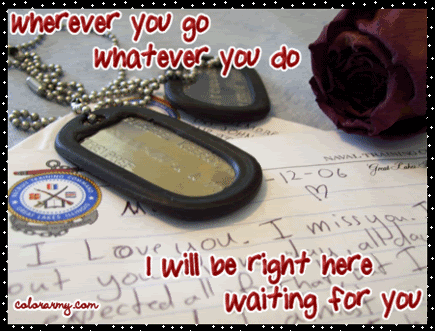Instructions
Difficulty: Moderately Challenging
Things You'll Need:
- A no-holds-barred celebration
- An almost immediate family vacation away from home
- Your deployment workbook
- An approachable attitude that allows others into your private sphere
- An attitude of understanding and respect for the accomplishments of your family in your absence
Step1
Celebrate! You've been deployed a long time but were fortunate enough to return home. Thank your lucky stars and celebrate this momentous occasion. When your family meets you at the airport, on base or at the pier, expect tears to fall freely—theirs and yours. Don't be ashamed of showing that kind of emotion even if you've never been given to it before. Everyone changes during extended deployments and if you've seen service in a combat zone, your life-and-death experiences will have made you a different person. Despite these emerging realities, enjoy the reunion with your family. Step2
Get out of Dodge. When you return from deployment, you're really coming home from a year's worth of work. As a result, you see home as a long sought after respite. On the other hand, your spouse sees the same house as a place of work, the family's central nervous system in which a year's worth of experiences—good, bad, enlightening, bewildering—have taken place since. To level the playing field for all involved, take advantage of one of the many vacation offers available to military families. A week or so away from home will allow you and your family to create new experiences together in a non-threatening environment, and it will enable you to ease back into your role as husband, wife, father or mother. The trip will also permit your family to adjust to you being among them again. Step3
Break out the book. Back home after the vacation, spend an evening with your family talking about some of the things that have happened in your absence. Open your deployment workbook, grab the calendar you should have included and collectively review the weeks and months that have passed. Talk about some of your experiences, achievements, fears and disappointments while inviting your family members to do the same. It's critically important that you have a chance to discuss with them your combat patrols, resupply missions and Saturday night poker games. At the same time, it's vital to give your spouse and children the chance to tell about achievements at the office, fighting with lawnmowers that quit working, how second grade is so much more difficult than first and that the Christmas band concert at school was the best ever. Step4
Recognize change. You've been gone quite a while and during that time you've grown personally and professionally. The same is true for your spouse. The moment you left home all those months ago, your spouse added your family and household duties to hers or his. Events such as praising or disciplining children, maintaining the yard, house and cars, walking the dog and even killing those really big, angry-looking spiders that occasionally skitter across the living room floor instantly disappeared from your responsibility list and materialized on your spouse's. In fact, he or she can probably tell you many things you didn't know about your own familial responsibilities. Listen closely to the experiences your spouse relates and accept that life went on in your household in spite of your absence. Step5
Don't upset the apple cart. Your spouse has kept the family running smoothly while you've been gone but that didn't happen by itself. She or he has learned to keep tabs on his or her schedule and those of the children, and doing so successfully required strict scheduling. Moreover, your spouse has planned time so precisely as a defense against the emotional effects of your absence. Take a step back and watch your spouse in action. Learn what's changed and don't question her or his techniques until you understand the motivation behind them. Step6
Separate but together. Essentially, you, your spouse and your kids have led separate lives during the course of your deployment. Because of that, each person needs a bit of time daily to be alone with individual thoughts. You were able to do that during your absence while you were eating at the mess hall, working out, cleaning your weapon or listening to music. Your spouse and family used similar methods to decompress. Talk about this openly with your spouse and family, and for the first several weeks after your return, be careful about inadvertently invading someone's private space.  If you are in need of support while your soldier is away (or at home!), join us at our
If you are in need of support while your soldier is away (or at home!), join us at our 

No comments:
Post a Comment